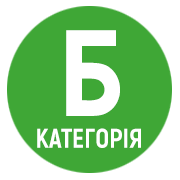INTERMEDIAL APPROACH TO DESTROYING STEREOTYPES ABOUT THE ACTIVITIES OF CHINESE MASS MEDIA (IN THE CONTEXT OF THE RUSSIAN-UKRAINIAN WAR)
DOI:
https://doi.org/10.32689/maup.philol.2025.1.6Keywords:
China, communication, mass media, stereotype, Ukraine, warAbstract
It is difficult to find a more pressing problem than the Chinese media (in the broadest sense of the word – including newspapers, magazines, file storage, blogs, etc.) today, because the fate of the unstable world depends on the positions and activities of these mediators of the opinions of the Chinese politicians and population. And if the information sphere of other countries is mostly filled with hopes and assumptions about China’s prospects and strategies, the media space of the Celestial Empire is the only primary source and carrier of the most reliable data, the production of which, unfortunately, is still perceived in a stereotypical way: with references to secrecy, cooperation with Russia and the communist regime. Meanwhile, even a brief review of the sites shows radically the opposite: informative richness, reliability, balance, and strict adherence to international standards. Focusing on the media, which is the target of many negative accusations, can completely dispel doubts. The state media, of course, are adjusting to the system: the front pages often appear in the form of reports and speeches by Chinese President Xi Jinping and other biased and editorialized materials, but the content of the media of all forms of ownership (unlike Syria, Iran, Azerbaijan, etc.) is quite high quality. The problem is mainly that the potential readership is not only in the grip of stereotypes, but is also media illiterate because it is unable to perceive pretexts, subtexts, contexts, intertexts. They should keep in mind at least the following: when producing information, journalism puts it into the genre of three blocks, among which the informational one (a note, a report, an interview, a news article) claims to state facts and absolute reliability; analytical (correspondence, a commentary article, a review, a press conference, a talk show) requires the presence of opposition speakers and a balance of opinions (a common substitute is the use of non-experts and lack of parity); journalistic (a critical review, a sketch, an essay and its varieties – a documentary, a squib, a pamphlet) can naturally contain fiction, fakes, author’s approaches, etc. So, for example, documentaries should not be expected to tell the truth. This genre is used when it is necessary to put pressure on emotions and mislead. This is exactly what we are observing in situations of legally declared «cooperation» between Chinese and Russian journalists while covering the war in Ukraine.
References
Bao Nuomin. Ukrainian troops launch new offensive in Kursk direction, Russia claims to have repelled it. Xinhua News Agency. 2025. URL: http://www.81.cn/ss_208539/16362832.html (date of application: 14.01.2025)
CCTV.com.: Official websitehttps. 2025. URL: http://www.cctv.com/index.shtm (date of application: 05.01.2025)
Kosiuk Oksana. Propaganda and Journalism (in the Context of the Second Karabakh War). European journal of transformation studies. 2022. URL: https://www.journaltransformation.org/docs/issues/EJTS_2022_ Vol_10_No_1/EJTS_2022_Vol_10_No_1.pdf (date of application: 05.02.2025)
Yang Dingdu. The war between Russia and Ukraine continues for another year. How far is peace? Xinhua. 2025. URL: http://www.news.cn/world/20241227/bb3de873ae3a4796b80a2214dc30b886/c.html (date of application: 10.01.2025)
Буцко Діана. «Частина китайців вірить у те, що Буча була інсценована»: китайські медіа та війна в Україні. Детектор медіа, 2023. URL: https://detector.media/infospace/article/210452/2023-04-24- chastyna-kytaytsiv-viryt-u-te-shcho-bucha-bula-instsenovana-kytayski-media-ta-viyna-v-ukraini/ (дата звер- нення: 25.01.2025)
Леврінц М. І. Компаративний корпусний аналіз висвітлення російсько-української війни в англомовній східній і західній пресі. Східний світ, 2023, (3 (120).
Лі Сянь. Українська служба Міжнародного радіо Китаю: намагаємося робити хороше радіо, але не тільки це. Україна–Китай, 2017, Спеціальний випуск № 1 (7).
Лісовська Роксолана. Полк «Азов» в Гонконзі, «біолабораторії» та «брудна бомба» – дослідниця Китаю про російську пропаганду в ЗМІ КНР. Суспільне. Новини. 2022. URL: https://suspilne.media/309238- polk-azov-v-gonkonzi-biolaboratorii-ta-brudna-bomba-doslidnica-kitau-pro-rosijsku-propagandu-v-zmi-knr/ (дата звернення: 28.01.2025)
Лу Сяоюй. Хроніки сьогоденного Києва. Україна–Китай, 2023, № 1 (24).
Пойта Ю. В. Український бізнес в китайських соціальних мережах. Україна–Китай, 2017, Спеціальний випуск № 1 (7).
Сердюк Катерина. МАГАТЕ зафіксувала два вибухи поблизу Запорізької АЕС: що відомо. Телевізійна служба новин. 2025. URL: https://tsn.ua/ukrayina/magate-zafiksuvala-dva-vibuhi-poblizu-zaporizkoyi- aes-scho-vidomo-2738070.html (дата звернення: 17.01.2025)






